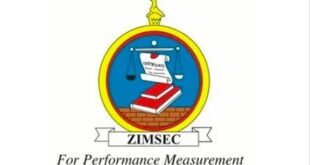Government of Zimbabwe recently conducted a nationwide school monitoring exercise aimed at addressing widespread discontent among teachers regarding their welfare, the shortage of learning resources, and inadequate infrastructure.
This comprehensive survey, which took place on October 1 and 2, was spearheaded by the Ministry of Primary and Secondary Education, emphasizing the government’s commitment to identifying challenges within the education sector and improving school governance.
Ministry spokesperson Taungana Ndoro articulated the objectives of the survey, stating, “We sought to evaluate adherence to governance protocols, the quality of teaching, student enrolment, and the availability of infrastructure.”
The ministry’s collaborative efforts included partnerships with key stakeholders, such as UNICEF, UNESCO, the World Bank, and members of the Parliamentary Portfolio Committee on Primary and Secondary Education, underscoring a collective commitment to educational reform.
The survey’s findings are expected to significantly influence future policy decisions, with Ndoro asserting that “the ministry and its partners are committed to using the findings to drive sustainable improvements in the quality of education and ensure all children in Zimbabwe have access to a robust and equitable learning environment.”
The initiative reflects a proactive approach to understanding and addressing the critical issues affecting the nation’s education system. Education experts have praised the monitoring exercise as a necessary step toward revitalizing Zimbabwe’s education framework.
Consultant Florence Mhlanga emphasized the importance of the survey, stating, “This comprehensive monitoring exercise is a positive move that will provide critical data on the state of schools. It offers an opportunity to address challenges in real-time and improve both infrastructure and the quality of teaching, which is vital for enhancing learning outcomes.”
The urgency of this initiative arises from the myriad challenges plaguing the country’s education sector, many of which stem from years of underfunding. Public schools, particularly in rural areas, are often ill-equipped, lacking essential learning infrastructure and materials such as textbooks, desks, and classrooms.
This situation has prompted significant discontent among teachers, who have expressed concerns about their working conditions and the ability to provide quality education to their students. In addition to infrastructure deficits, the education sector has been adversely affected by a persistent skills flight, as experienced educators leave the profession in search of better-paying opportunities abroad.
Richard Mutamba, an academic and education policy expert, echoed Mhlanga’s sentiments, stating, “This inclusive approach will undoubtedly result in more effective policies and interventions that support the growth and development of our education system.”
The monitoring exercise is seen not only as a mechanism for gathering data but also as a crucial opportunity to engage with educators and stakeholders to foster collaboration.
By involving various partners, the government aims to ensure that the voices of teachers and the needs of students are adequately represented in future policy-making processes. Despite the optimism surrounding the monitoring exercise, challenges remain. Teachers have voiced frustration over low salaries, insufficient teaching materials, and deteriorating school infrastructure.
These issues have led to calls for more substantial government investment in education to rectify the longstanding inequities that exist within the system. The outcomes of the monitoring exercise will likely inform strategies for reallocating resources and prioritizing areas that require immediate attention.
 Nhau News Online News that is accurate, reliable, trustworthy!!
Nhau News Online News that is accurate, reliable, trustworthy!!
